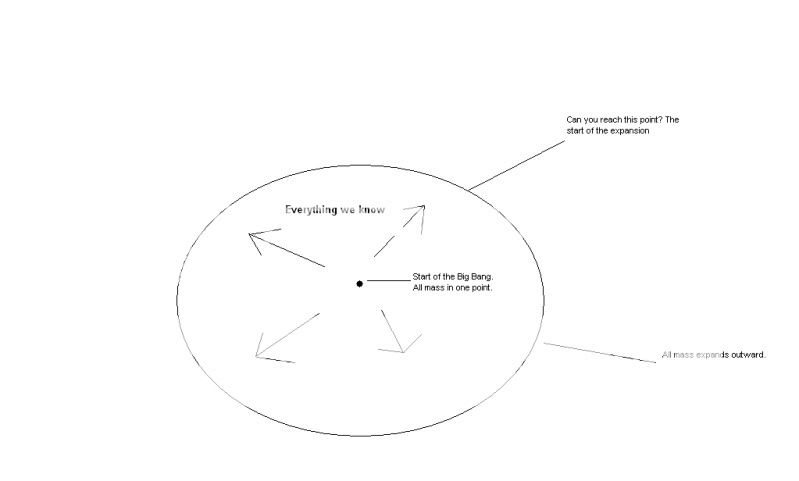michaelmozina":r6vtalpm said:
That response is a bit misleading IMO. "Spacetime" can expand as the objects that make up space time separate and spread out over time as that drawing suggests. The BB however relies upon "space" (not spacetime) expansion, and that issue is still hotly debated. "Space" expansion cannot be physically demonstrated in a controlled test here on Earth, and the redshift phenomenon is evidently not dependent upon any type of "space" expansion.
http://arxiv.org/abs/astro-ph/0601171
No Michael, as usual you are skewing things toward the lunatic fringe. It is not hotly debated among the competent.
These fringe ideas are not based on science and should be confined to The Unexplained where they belong.
What is "expanding" are space-like slices of space-tiime, or in reasonable terminology is it SPACE ITSELF that is expanding as measured by the Riemannian metric that the space-like slices inherit from the Lorentzian metric of space-time. This notion is based on a realization of space-time as a foliation by a one-parameter family of space-like slices and that foliation is enabled by the assumption, called the cosmological principle, that the universe is homogeneous and isotropic on the largest scales. Yes it is space that is expanding, and it most certainly is that expansion that accounts for redshift.
The inability to measure the expansion of space in an earth-bound laboratory is totally irrelevant. The effects of the expansion are predicted by models of the universe based on general relativity (yes, Einstein's general relativity as practiced by he man himself), and the expansion is supported by a mountain of EMPIRICAL observational data. Even Hannes Alfven himself recognized the value of a need for careful in situ observational measurements and knoew tha tnot all experiments can take place in an earth-bound laboratory. Your position to the contrary is neither rational nor scientific.
I am quite aware that you will dispute all of this . We have been here before. But I also recognize that you have no idea what you are talking about and that your are pushing your personal agenda. Unfortunately that agenda has the potential to do harm to people like the OP who are trying to actually learn something about science.
That is why it has been made quite clear in the past that the only place where your agenda should be discussed is in The Unexplained. Please keep it there.
michaelmozina":r6vtalpm said:
DrRocket":r6vtalpm said:
]Where did the Big Bang start ? EVERYWHERE.
Whatever that means.....
There is absolutely no possibility that the universe is "infinite" in size if it has a "finite" age.
1) It means exactly what it says. I know that you don't understand that point. We have talked about it before. I know that I cannot educate you, and that you have no wish to learn and be educated in any case.
2) Rubbish. The universe can be either finite or infinite (in proper terminology closed or open) in a finite time. In fact it is quite easy to describe a smooth transition from a point to a full Euclidean space in 0 time, and I have given you the equations previously -- it is what mathematicians call a strong deformation retract to a point. Here it is one more time
f(X,t) = tx. As one can easily see f(X,0)=o for any x and the image of f(x.t) is all of whatever dimensional space you start with for any t other than zero. While this does NOT describe the dynamics of the Big Bang it does quite clearly ow why your contention has no merit whatever.
Your inability to comprehend general relativity and mathematics does not invalidate the hard science that supports the Big Bang.



